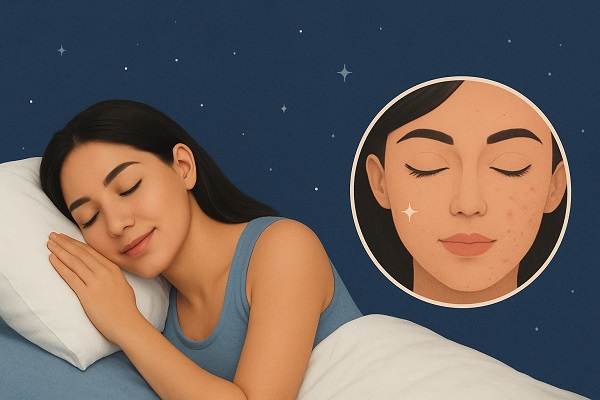
Follow us Now on Telegram ! Get daily 10 - 12 Interesting Updates. Join our Telegram Channel https://t.me/OhWomen
Download Telegram App before Joining the Channel
In the quest for radiant and youthful skin, we often hear the phrase "beauty sleep" — but is it just a catchy saying, or is there scientific truth behind it? Beauty sleep plays a vital role in maintaining healthy skin, and understanding its importance can help you unlock your natural glow.
What is Beauty Sleep?
Beauty sleep refers to the quality rest that the body, especially the skin, undergoes during the night. This period is crucial for the body's repair mechanisms, including the skin’s ability to regenerate, heal, and maintain its elasticity.
How Does Sleep Affect Skin Health?
1. Cellular Repair and Regeneration
During deep sleep stages, your body increases blood flow to the skin, delivering essential nutrients and oxygen. This boosts the production of collagen—a key protein that keeps skin firm and supple. Without enough sleep, collagen production drops, leading to fine lines, wrinkles, and sagging skin.
2. Reduction of Inflammation
Poor sleep can trigger increased inflammation in the body, which often manifests as redness, puffiness, and breakouts on the skin. Chronic sleep deprivation may worsen skin conditions like acne, eczema, and psoriasis.
3. Hydration Balance
Sleep helps the skin balance hydration. When you don’t get enough rest, your skin becomes dry and dull because water balance is disrupted, causing dehydration.
4. Hormonal Balance
During sleep, the body regulates hormones such as cortisol, the stress hormone. Elevated cortisol levels due to lack of sleep can break down collagen and increase oil production, leading to acne and other skin issues.
5. Protection from UV Damage
Some studies suggest that insufficient sleep might impair the skin’s ability to recover from UV damage caused by the sun, increasing the risk of premature aging and skin cancer.
Tips for Better Beauty Sleep
Maintain a consistent sleep schedule: Go to bed and wake up at the same time daily.
Create a restful environment: Keep your bedroom dark, cool, and quiet.
Avoid screens before bedtime: Blue light from devices disrupts melatonin production.
Stay hydrated: Drink water throughout the day, but reduce intake before bed.
Practice relaxation techniques: Meditation or gentle stretches can improve sleep quality.
Invest in quality bedding: A comfortable mattress and pillow can improve sleep posture and skin health.
Conclusion
Beauty sleep is much more than just a myth. It’s a scientifically backed way to support your skin’s health and appearance. Prioritizing good sleep hygiene not only benefits your skin but also your overall well-being. So, tonight, make sure to get those precious hours of restful sleep and wake up glowing!